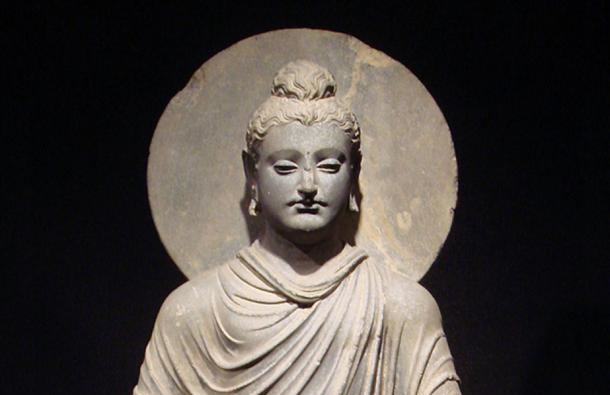
Apranihita is a Sanskrit term meaning “wishlessness”, “aimlessness”, or “freedom from striving”. In Buddhist thought, it refers to a deep letting go—the abandonment of chasing, grasping, or needing things to be different from how they are. It is not apathy or passivity, but a profound state of contentment with what is—a rebellion against modern norms it is alright!
In the modern world, this concept sounds almost offensive to modern sensibilities we “gotta get somewhere, gotta be somebody, gotta attain some object.”
Aimlessness is typically framed as a flaw: to be without purpose, direction, or goals is to be lost, to be drifting, to be “wasting your potential”. We are told that to be fulfilled, we must know what we want, chase it relentlessly, and never settle. This belief system—internalised by nearly everyone—has a cost: it creates “dukkha”, the suffering that comes from craving and clinging—contrary to the buddhist stillness of inner peace.
“Does the rose have to do something? No, the purpose of a rose is to be a rose.”
— *Thich Nhat Hanh*
This simple observation by the late Zen master undermines the very foundation of our cultural conditioning. The rose is not trying to become something else. It does not perform. It simply *is*—and that is enough. In contrast, we are rarely at peace in ourselves, because we are always reaching for something or trying to rid ourselves of something. We live as if life begins *after* we’ve achieved, changed, improved, or arrived somewhere else.
A Modern Disease
While the human tendency to seek and grasp has existed in all ages—Buddhism itself emerged as a response to this universal condition—it is particularly intensified today.
Modernity, especially in its “consumerist” and “capitalist” everpresent forms, is built on the principle that we are inherently lacking. Every advertisement, every career ladder, every social media platform whispers (or shouts): “You are not enough.” But you could be, if only you bought this product, gained this status, looked this way, or achieved this goal.
This is not just cultural. It becomes personal, psychological, even spiritual. We internalise the voice of deficiency. We become restless, anxious, and self-alienated—forever running, but never arriving.
“Happiness, peace, and enlightenment are not somewhere else or in the future—they are available right now, in the present moment. When you stop chasing, you start living.”
The Natural World Doesn’t Strive
The absurdity of our condition is made even clearer when we look at the natural world:
The tree is not asked for rent, the fox is not burdened with a CV.
The lily blooms without a career plan, without savings, without shame.
But man—the only creature exiled from ease—must prove his worth by the hour,
earn his rest, and justify his existence with receipts.
Born into debt, he is told to dream big, then taxed for dreaming.
While the forest thrives in silence, we labour beneath fluorescent lights,
mistaking survival for success.
In nature, nothing tries to become anything else. The grass grows. The river flows. The clouds pass. But we—so clever, so modern—are rarely still, rarely satisfied. We treat life as a project, a performance, a proving ground.
The Conditioned Self
This endless striving is not just external. It is tied to our very sense of identity. We are attached to conditioned things that are impermanent and unsatisfactory by nature: job titles, social roles, body image, wealth, reputation, even spiritual attainment. We cling to what is always shifting and wonder why peace never lasts.
“Gotta get somewhere, gotta be somebody, gotta attain some object.”
This is the mantra of modern life—and also its prison.
Apranihita as Rebellion
To embrace aimlessness is to revolt against this conditioning. It is to say: “I do not need to chase worth. I do not need to become anything else to be whole.”
This isn’t laziness. It’s clarity. It’s the insight that running is not the solution—it’s the problem.
“If you want to be rebellious, be still.
If you want to be radical, be content.
If you want to be free, stop striving.”
A Way Forward
This doesn’t mean we abandon all action or ambition. But we can let go of the idea that our value depends on results. We can walk, work, create, and love without turning life into a checklist.
In Buddhist practice, aimlessness is not a denial of motion but a return to presence. To walk just to walk. To breathe just to breathe. To sit without trying to achieve any special state. To be, fully—without justification.
In a world that demands we always prove ourselves, aimlessness is liberation.

